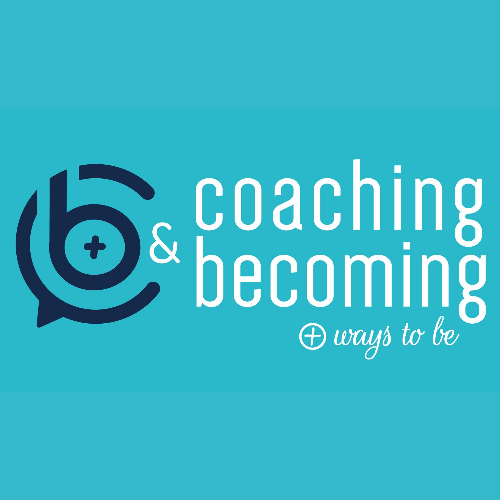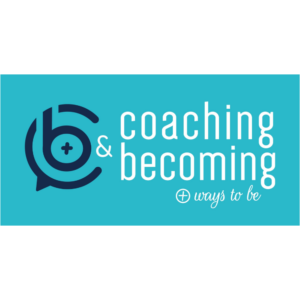Look at your children’s orientation in a different way
- Orientation Coaching – May 15, 2020
Orientation is a real challenge! It raises a lot of questions in young people, as well as in their parents!
There are: high school students who have no idea what they want to do and those who hesitate between 2 paths or those for whom everything is so open that they don’t know which direction to take.
And then there are: the parents who would so much like their child to finally find his or her way, those who are under a lot of stress due to unemployment or lack of job opportunities, and those who dream of their child having a brilliant career just like them or just the opposite…
So this whirlwind of questions and concerns, not to mention the pressure of the entourage or the school system and the particular context of expatriation, sometimes generate stress, doubts or discouragement, and that’s normal!
So, cherry on top of the cake, when the health situation is combined with promiscuity that can stir up personality clashes, with a change of work rhythm and uncertainties about examinations or admissions that destabilize, with deadlines that are approaching despite everything, orientation can quickly become a tug of war between young people and parents.
For all that, this restriction of freedom to come and go that is imposed on us can be liberating for some! That’s right! This period of confinement is also at the origin of more creativity and source of emergence of unsuspected talents! Perhaps you’ve been noticing it?
So it’s questioning. What is it about these talents that normally would not see these talents emerge? What are the factors blocking the revelation of our children’s personalities, aptitudes and natural predispositions?
There are several parameters that can explain this: the context is indeed different. And also maybe our own perception of things, as parents.
Finally, what hinders our parents’ view of orientation are both external obstacles and internal brakes.
Among the external obstacles – those that come from our environment – are, among others, the following:
pressure from the school system to move very early and rather towards selective training,
social pressure or pressure from those around us who, unconsciously, do not allow us to envisage an atypical path, for example
the economic pressure of competition and unemployment, which drive us away from choices for the future that are seen as having no opportunities
In short, we are influenced by our frame of reference, which limits our field of vision. So, for example, the same family, depending on where they are going to live (San Francisco, New Delhi, Dunkirk, or sailing around the world), will not see the world in the same way and will probably not have the same expectations for tomorrow.
And then there are our own brakes on recognizing talent in our children:
our relationship difficulties that can prevent us from communicating and really getting to know this teenager who lives with us
our tendency to sometimes “label” our children by describing them through behaviour (which may date back to when they were 10 years old!), and forgetting to see that they have changed and that we are locking them into a reductive perception and presentation.
our lack of availability quite simply
his difficult school results or his atypical profile that destabilize us…
our hopes and dreams for them, i.e. our projections that are not always in line with theirs.
our fears of the unknown, of the uncertain future…
In fact, these are all legitimate fears, but are they real or imagined?
So, how do we look at our children differently? another look at orientation?
On the one hand by building on his strengths as a parent and on the other hand by taking into account all the opportunities that a new look can open up.
- First of all, it has to be said that a priori it’s you who knows your children best: good starting point, isn’t it?
- Then, as parents, it’s true that we are sometimes demanding or stressed, but why? Because you actually want the best for your child! And that’s a real strength!
- 3rd strength: you, dear parents, have a maturity and perspective that your child does not have (yet).
- In addition, your simple position as parents also gives you a real legitimacy: you are landmarks for them, a lifeline: and that’s very reassuring when you’re looking for each other!
- 5th strength: your own personal and professional life experience. It is precious, for you of course, but also to share with your children! Yes, don’t hesitate to talk about your successes, your joys of course, but also your mistakes, your course changes… (to a certain extent, of course)! You will see that this can make some young people feel less guilty, as they sometimes put their parents on a pedestal and feel less than nothing…
- On the other hand, I don’t know if this has ever happened to you, but you can admire a rather exemplary strength of character in some parents: it’s when they make a difficult decision, which goes against their own safety needs, simply because they are convinced that this decision will be formative for their teenager. Example: let him take a sabbatical year!
- And finally, a key strength: open dialogue with your teenager and your confidence in him or her! As long as there are no taboos and if he feels listened to, heard in his doubts, his fears, his refusals… and if he feels that you trust him: it is liberating for him!
Yes, our strengths can be real assets in this period of orientation and if, on top of that, we accept to change glasses, let’s see all the opportunities that this opens up for us:
- 1st opportunity: to be encouraged to change prism by avoiding considering the orientation only through that of school results. For example, observe their way of being: alone and in a group, their sporting, musical, artistic and human talents… you will discover their personality, their type of leadership…
- 2nd opportunity: reconsider the positive in each of our children and tell them! Try, putting aside your usual judgements and encourage, congratulate, compliment!
- You can also choose to respect their rhythm and dare to let them get bored, take initiatives (yes, yes, I assure you, it happens!), bubble (to a fair extent 😉 because you open up a precious space of freedom and creativity to them!
- 4th opportunity: let go of your own parental fears, for example, by stopping struggling with strenuous studies for one of your children. You’ll see how liberating it is for everyone!
- In expatriation, a great opportunity is the one we have offered them during their various stays: many windows open on the world! For our young expats, the choice of studies is therefore not only in France but all over the world!
- What’s more, the super-powers of young expats are opportunities in themselves: they often speak several languages, are masters in the art of change, know airports better than subway corridors, have this ability to make friends everywhere, are generally less afraid to speak in public or to adults… full of talent!
- 7th opportunity: Take advantage of the fact that with all the range of professions that are emerging and the training courses that are evolving, the professional prospects are enormous! So don’t worry: everyone can find their way around! And their personality and experience can open doors for them as much as their training 😉
- Then, a recommendation: take advantage of it and have a (good) time with your teenagers: alone or with your family, to play, discuss, read, shop… and be careful, this is where important discussions happen without warning, get ready 😉
- And finally one last opportunity: letting go! Because finally in guidance: what’s up to me, parent? and what depends on my son or daughter?
So that’s a great set of opportunities to take a fresh look at your young people and their direction, isn’t it?
In any case, there is no single solution. So many parents, so many young people, so many contexts, and at least as many solutions! And what’s good for you isn’t necessarily good for your best friend ?
To conclude, we can simply retain 3 keys to your role as parents – a particularly essential role in this period of orientation:
- Believe in one’s youth, in one’s ability to find a solution, to move forward! This means: don’t manage in his place but tell him that you trust him and give him back the power! You’ll see, it’ll change them!
- Believing in yourself, in your role and intuition as a parent and knowing how to delegate to a third person what weighs on you or surpasses you: that’s what it means to find your right place!
- And third key: believing in the future that opens up the field of possibilities!
In short, you have understood it: rely on TRUST! And you will have created the ideal conditions for your young people to fully reveal themselves!
“So, are you ready to be the actor of your life?”
Clotilde Boyer



